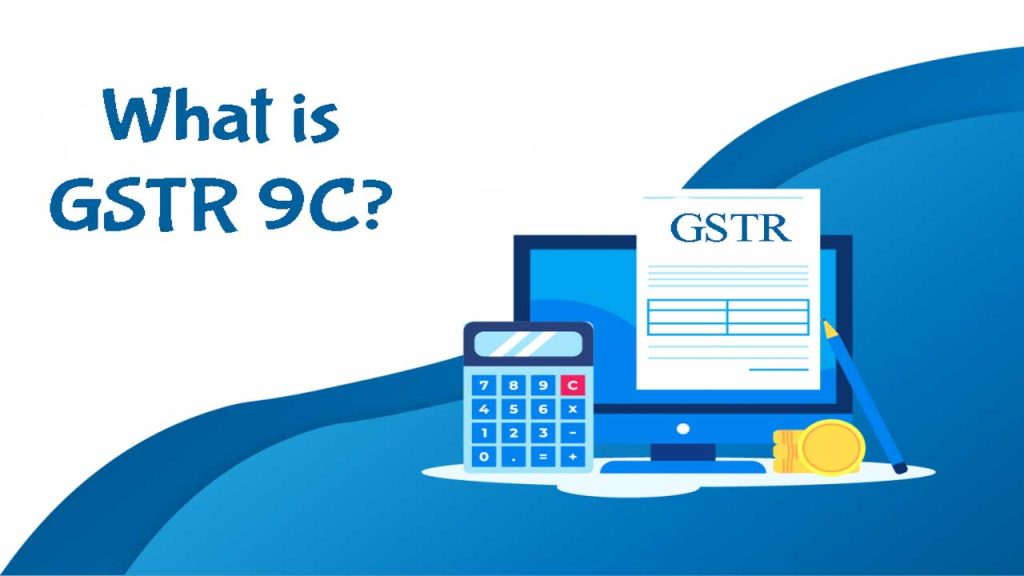GSTR 9C – Any enrolled individual whose turnover throughout an FY exceeds ₹5 crores must have his financial statements audited as stated u/s 35(5) of the CGST Act, and must supply a replica of the audited annual accounts as well as a properly approved reconciliation statement in GSTR-9C. The accounts must be audited by a CA or a cost accountant.
It’s identical to a tax audit report submitted under the Income Tax Act. That would include gross and taxable turnover from the accounts reconciled with the corresponding estimates from the consolidation of all GST returns for the FY. As a result, any discrepancies discovered during the reconciliation process will be recorded herein, together with the explanations for them. For each GSTIN, a certified statement must be given. As a result, a PAN can necessitate the submission of multiple GSTR-9C forms.

Documents required to file GSTR 9C –
Balance Sheet
P&L account or Income & expenditure account
Cash flow statement
Others mentioned
Who is required to file GSTR 9C?
Any registered business whose turnover exceeds ₹5 crores should file GSTR 9C.
Note – In the lack of a valid rule u/s 44 or Rule 80 of the CSGT Act 2017, It is obvious that GSTR 9C cannot be changed after it has been submitted.
Must Read – What is GSTR – 9?
How to preapare GSTR 9C?
A Chartered Accountant or Cost Accountant should prepare and approve GSTR-9C. The taxpayer should submit this with other records, like a replica of the Audited Accounts as well as an Annual Return in form GSTR-9, on the GST website. This argument applies to all individuals who are required by the GST laws to have their financial statement audited. Such enrolled individuals whose annual aggregate turnover crosses rupees 5 crores in the FY are subject to a GST audit.
This GST Reconciliation statement must be produced by a CA or a Cost Accountant. Any discrepancies among the information reported throughout all GST returns and the information stated in the Audited Accounts should be disclosed by the CA, together with the explanations for the discrepancies. This assertion serves as a basis for the GST authority to validate the authenticity of the taxpayers’ GST returns. This is why the CA is required to approve any new responsibility resulting from the GST evaluation and reconciliation procedure in GSTR-9C.
What is the due date for filing GSTR-9C?
The due date for filing annual reports in GSTR-9 is similar to the due date for filing GSTR-9C. As a result, the GSTR-9C should be submitted on or before 31/12 of each year after the audited FY. If the government finds it appropriate, the deadline may be prolonged.
Penalty for the late filing of GSTR-9C
A penalty of Rs 25,000/- is levied u/s 125 of the CGST and SGST Act 2017. As there is no particular fine for delayed filing of GSTR 9C, we can conclude that the generic fine listed above will be levied on a tax evader in this case.



